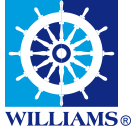The Navy detailed the detachment operation of the ship MV Stellar Banner, which started at 2:10 pm on Wednesday (11). The method for removing approximately 3,500 tons of fuel oil consists of reverse filling procedures with the aid of a receiving vessel. Before stranding, the ship, owned and operated by South Korean shipowner Polaris Shipping, was transporting 294,800 tonnes of Vale’s ore to China. After a safety meeting between the teams involved and all the equipment ready, the receiving vessel started the approach and passage procedure for the entire device. Before starting the operation, tests were carried out on the hoses and transfer system. According to the maritime authority, leakage containment kits are available at the hose connection locations on the ship and on the receiving vessel to mitigate the risk of environmental pollution. A vessel will be positioned next to the Stellar Banner, which will be connected to the vessel to receive the oil. After all safety checks, pumping will start for the receiving vessels; The Navy will coordinate vessels that will be outside the area of responsibility of the ‘Salvage Master’; The operation will be carried out in compliance with all safety and environmental responsibility standards, aiming at excellence. However, in the event of an incident, there is a response readiness structure, with specialists in oil spills, specialists in environmental contingency and medical staff. A helicopter and an airplane will monitor the operation, with the support of specialists in environmental contingency; A Navy helicopter will accompany the operation. The Navy employed 255 military personnel and provided the ocean support vessel Iguatemi, the hydroceanographic vessel Garnier Sampaio, a UH-15 helicopter and four vessels from the captaincy of the ports of Maranhão (CPMA). Also working at the grounding site: six tugs (three of them equipped with materials to combat oil pollution); a drone with thermal camera; and four vessels supporting oil spill contingency activities (OSRV and OSV) and one PSV vessel (supply transport). The 15th coordination meeting at the CPMA, held on Wednesday (11), included representatives from Vale, the Brazilian Institute for the Environment and Renewable Natural Resources (Ibama), environmental management of Porto do Itaqui, state secretariat for the environment and shipping agents.
Source: Portos e Navios






